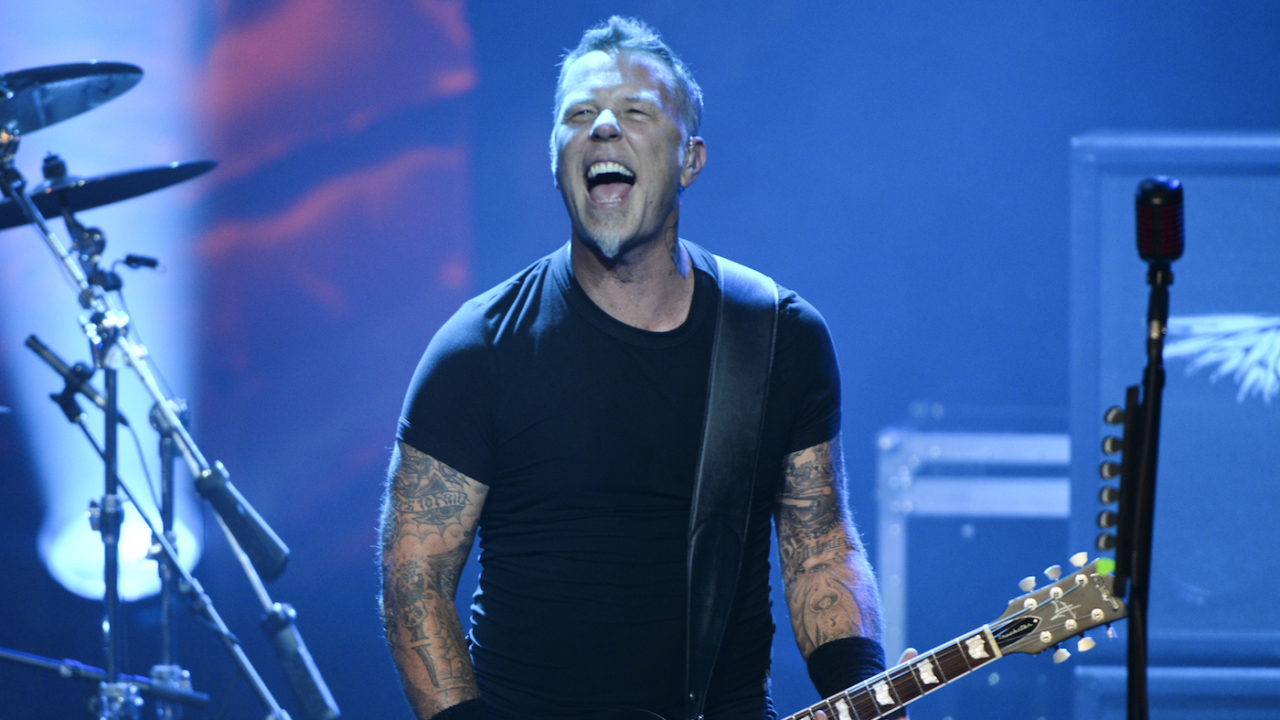In June 2013, Michael Eavis spoke out in support of the government’s policy of culling badgers. The then 77 year old founder of the Glastonbury festival told The Guardian that “as a dairy farmer I am not on the side of the badger.”
Since founding the festival in 1970, Eavis has seen all manner of bands and artists perform on the site of his Somerset farm. Few of these are better than PJ Harvey, an incandescent creative presence and an unapologetic supporter of fox-hunting.
The reader can be forgiven for not knowing of Eavis’ and Harvey’s stance on animal husbandry because, well, because no one cared.
This, clearly, is not the case with Metallica.
For the first time since the release a decade ago of Some Kind Of Monster, the San Franciscan quartet have become the most talked about group in Britain. The news that frontman James Hetfield is to narrate The Hunt, a series about killing wild bears in Alaska commissioned by the US cable franchise The History Channel – which is available in the UK – has been met with an outcry that could hardly be louder had he pulled up to the doors of the World Wildlife Fund clutching the severed head of the world’s last remaining panda.
An online petition to remove Metallica from this year’s Glastonbury bill is now in motion.
Of course, it would be wrong to suggest that no animals were harmed during the making of The Hunt. But it would also be wrong to claim that they were harmed by James Hetfield. The 50 year old frontman no longer hunts. He may these days do the PR work for the ‘sport’, but in speaking up for an unpopular and taboo activity he is only following in the footsteps of Michael Eavis and Polly Jean Harvey.
So what might this rhubarb really be about?
It is tempting to say that the outcry that has continued more or less unabated since Metallica were announced at the Saturday Night Pyramid Stage headliners for this summer’s Glastonbury get-together is about nothing more than cultural elitism. A number of people – some of whom may actually be attending the festival - are appalled that metal’s most successful band have stormed – and by invitation, at that! - the Somerset citadel.
Pitted against this snobbery is an inverse snobbery that is also operating at full-whack. Many metal fans are appalled that Metallica are appearing at ‘Glasto’ and giving themselves to ‘the kind of people’ they imagine attend the event.
But let’s be more generous and say that this is nothing more than cultural discomfort. But Glastonbury is an event that prides itself on its diversity. To exclude Metallica from this open-house policy is as inconsistent as believing there is a difference between James Hetfield narrating footage from a bear hunt and PJ Harvey speaking up in favour of dogs chasing a fox to its death.
Glastonbury stalwarts would do well do understand this. Metal reactionaries would do well to get over themselves.
What has also been forgotten is that we’ve been here before. In 1985 when Metallica were booked to appear at Donington Park as part of the Monsters Of Rock package – sandwiched between LA hairspray rockers Ratt and New Jersey hairspray rockers Bon Jovi – the cries of outrage from ticket holders and conscience-keepers were loud and piercing. Metallica, it was said, were ill-suited to the festival. Metallica were moronic and barely house trained. Metallica – how best to put this? – were just not our kind of people.
With an arcing belch of stale air, 29 years later history is once again repeating itself.
Ian Winwood is the co-author of Birth School Metallica Death, published in paperback today by Faber & Faber.

